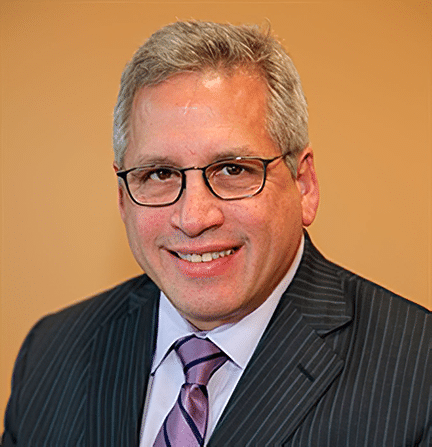Highlights & Q&A From Our Previous Planned Giving Webinar
Dear friends,
Thank you so much for being part of – or registering for – our first session in MIU’s Fall 2025 Planned Giving & Financial Strategy Series: “Charitable Giving and Financial Strategy.”
We created this series because many of you have asked the same thoughtful questions:
How do I support what I care about… provide for my family… and be intentional about taxes?
How do I build something lasting, even if I don’t consider myself “wealthy”?
In our first session, Mayor Connie Boyer shared practical, well-vetted approaches to giving now and planning for the future. Here are a few key takeaways:
You don’t have to be ultra-wealthy to plan your giving.
Even modest, well-structured gifts—like naming MIU as a beneficiary on an IRA or life insurance policy—can create enduring impact.
The type of asset you give matters.
Cash is simple, but donating appreciated stock or making a Qualified Charitable Distribution (QCD) directly from an IRA (for those age 70½ and older) can be more tax-efficient and may help satisfy required minimum distributions.
You can “set it up now and let it work overtime.”
Tools such as donor-advised funds or charitable remainder trusts can allow you to:
– receive an immediate charitable deduction (subject to IRS limits),
– potentially retain income during your lifetime, and
– ultimately direct lasting support to MIU or other causes you love.
Keep beneficiary designations up to date.
Your IRA, life insurance, and transfer-on-death/payable-on-death accounts follow the forms on file—even if your will says otherwise. Reviewing these regularly helps ensure your legacy aligns with your current wishes.
We also had excellent questions, such as:
– “Is planned giving still relevant if I don’t have a big estate?” (Absolutely.)
– “Can I give stock or real estate instead of cash?” (Often yes—and it can be more tax-smart.)
– “How can I keep supporting MIU long after I’m gone?” (Through endowments, beneficiary designations, or structured gifts that continue your annual giving.)
Next steps:
• Reply to this email if you’d like more info or have any questions.
• If you have a personal question, we’d be happy to connect privately—confidentially and without obligation.
• Our next session will focus on Wills, Beneficiary Designations, and Legacy Planning. Details to come soon.
On behalf of MIU: thank you.
Your generosity—of any size and in any form—sustains the heart of this university and its mission of Consciousness-Based education.
With gratitude,
Leila Izadian
Vice President of Development
Maharishi International University
development@miu.edu
You may also contact our Development Specialists Directly:
Brad Mylett: Bmylett@miu.edu
Debbie Brill: Dbrill@miu.edu
Dr. John Hagelin, President Emeritus: jhagelin@miu.edu
Please let our team know if you would like to submit an LOI or update a LOI you already have on file.
P.S. Iowa residents may qualify for the Endow Iowa state tax credit—worth 25% of the gift amount—for endowed gifts made through approved community foundations. If you’d like to learn more, we can have Mayor Connie Boyer or our development team walk you through how it works.
Maharishi International University (MIU)
Planned Giving & Financial Strategy Series
Session 1 – Charitable Giving and Financial Strategy
Presented by Mayor Connie Boyer, Financial Advisor (Edward Jones)
Hosted by Leila Izadian, Vice President of Development, MIU
October 2025 – Fairfield, Iowa
Purpose of the Session
To help individuals understand how philanthropic giving can align with sound financial and estate planning—allowing donors to make meaningful impact while optimizing tax efficiency and personal financial security.
Key Insights
1. Everyone Can Participate in Planned Giving
Planned giving is not limited to large estates. Whether through recurring annual gifts, IRA beneficiary designations, or smaller legacy gifts, every donor can create meaningful, lasting change.
2. Types of Giving
- Outright Gifts: Cash, check, or credit card donations; simple and immediate.
- Appreciated Securities: Gifts of long-term appreciated stock can avoid capital gains and may qualify for a fair-market-value deduction.
- Qualified Charitable Distributions (QCDs): Individuals age 70½+ may transfer up to $105,000 (2025 limit, indexed annually) per year directly from an IRA to a qualified charity. The distribution counts toward the Required Minimum Distribution (RMD) but is excluded from taxable income.
- Real Estate or Closely-Held Assets: Possible with professional appraisal and due diligence.
3. Structured and Legacy Tools
- Donor-Advised Funds (DAFs): Give now, take a deduction (within IRS limits), and recommend grants later. Ideal for bunching several years of gifts into one tax year.
- Charitable Remainder Trusts (CRTs): Provide income to you or loved ones for life or a term of years; remainder goes to charity. May defer or reduce capital gains.
- Charitable Lead Trusts (CLTs): Provide income to charity for a set time, with remainder to heirs—useful in certain estate-tax scenarios.
- Charitable Gift Annuities (CGAs): Provide fixed lifetime income to the donor (or couple), with the remainder benefiting a single charity.
- Bequests & Beneficiary Designations: Simple, revocable, and among the most common planned-giving methods.
4. Tax Considerations (General Education Only)
- Charitable deductions are available to taxpayers who itemize, subject to AGI limitations (generally 60% for cash gifts to public charities, 30% for appreciated property).
- Carryforward for unused deductions is up to 5 years.
- State-specific programs like Endow Iowa may provide additional tax credits.
- Always consult a qualified tax advisor or estate attorney before finalizing any gift plan.
5. Updating Beneficiaries & Documents
Beneficiary designations override wills. Review them after major life events (marriage, divorce, births, deaths). Keep originals in a secure, accessible place.
6. Ethical Stewardship
Philanthropy reflects alignment of purpose, not just assets. Documenting intent ensures the use of funds reflects your values across generations.
Common Questions Addressed
Is planned giving only for wealthy families?
No. Planned giving is about intentional generosity and tax-smart planning, not net worth.
What assets are best to give?
Often appreciated securities or IRA assets (via QCDs) create the most efficient outcome for both donor and charity.
Can I change my plan later?
Yes. Most beneficiary designations, wills, and revocable trusts can be updated easily.
Does a Charitable Remainder Trust eliminate taxes completely?
No. It can defer and smooth out taxes, but income received is taxable under a four-tier system (ordinary income, capital gains, tax-free income, return of principal).
What happens if my chosen charity changes mission or dissolves?
Trust or fund documents can name successor beneficiaries or specify alternative charitable purposes.
Other Questions & Expert Answers
Can I name multiple charities or divide my legacy gift among them?
Yes. Many donors choose to designate percentages or specific amounts to multiple charities. Structuring your estate this way provides flexibility and reflects your broader values. Your attorney can easily draft this language into your will or trust.
Is it better to gift from my IRA or my taxable account?
That depends on your tax situation and age. Generally, IRA gifts (through QCDs) can be more tax-efficient for individuals over 70½ because they reduce taxable income directly. For younger donors, gifting appreciated assets from taxable accounts may avoid capital gains while providing an immediate deduction.
How do charitable gifts impact estate taxes?
For individuals with estates exceeding the federal exemption ($13.61 million per person in 2025), charitable gifts can reduce taxable estate value. Even for smaller estates, gifts may simplify administration and align with legacy goals.
Should I include my children in my giving decisions?
Yes. Family philanthropy builds shared values and helps heirs understand your intentions. Tools such as Donor-Advised Funds (DAFs) make it easy to involve family members in recommending grants over time.
What’s the best way to give anonymously?
You can request anonymity directly through your donor-advised fund or by notifying the receiving charity. Some donors choose to give through a foundation or intermediary to protect privacy while still ensuring proper acknowledgment.
If I already have a will, do I still need a trust?
Not necessarily. A will directs how assets are distributed through probate, while a trust allows assets to transfer privately and efficiently. Many individuals use both—a will for general instructions and a revocable trust for assets like real estate or investments.
What’s the best time of year to make a charitable gift?
Many donors give at year-end to align with tax planning, but gifts can be made any time. For complex assets, such as stock or real estate, initiate the process early (by November or earlier) to ensure transfer completion within the tax year.
What documentation should I keep for my records?
Always retain written acknowledgment letters from charities, proof of asset transfers, and IRS Form 8283 (for non-cash gifts above $500). These records support your tax filing and confirm compliance.
I have debt with no assets with exception of IRA with beneficiary. If I die, can the debt be recovered from the IRA?
Ask your attorney because it may be different depending on the circumstances.
Are Charitable remainder trusts taxed?
Again, ask your attorney who is setting up the Trust. Generally speaking, the CRT is tax-exempt at the trust level but the distributions to beneficiaries often have tax consequences.
Final Note
This session was educational only and not intended as legal, tax, or investment advice. Participants should consult their qualified financial, legal, or tax advisors before taking action.
Maharishi International University
Office of Development & Advancement
Fairfield, Iowa
development@miu.edu
www.miu.edu
Development Office Main Address
MIU Development Office
1000 North 4th St.
Fairfield, IA 52556 USA
Email Address
giving@miu.edu
Employer Identification Number (EIN)
42-1315493
IRS Subsection
501(c)(3) Public Charity
Make sure to include MIU’s EIN #42-1315493 in your planned giving documents
The success of Maharishi International University will be measured by its direct and indirect effects on the quality of life everywhere. We will count ourselves successful only when the problems of today’s world are substantially reduced and eventually eliminated and the educational institutions of every country are capable of producing fully developed citizens.
—Maharishi Mahesh Yogi, 1974
What is Planned Giving?
Many people like to support the institutions that mean the most to them with a gift through their will or trust, or other type of planned arrangement. These gifts, known as planned gifts, are usually, though not always, fulfilled upon the person’s passing.
Planned gifts provide a unique opportunity for you to create a lasting legacy.
They provide a way for you to pass on your values – what you have found to be most worthy of preserving for future generations.
Additionally, planned gifts are a way to achieve certain charitable and financial goals, and may yield certain federal tax advantages.
Who can give?
However, people from all walks of life can make a planned gift – not just the wealthy.
When most people think of making a gift, they think of writing a check or using a credit card. Planned gifts are usually made from people’s assets, such as cash, securities
What can I give?
When most people think of making a gift, they think of writing a check or using a credit card. Planned gifts are usually made from people’s assets, such as cash, securities,
real estate, business interests, artwork, intellectual property, retirement plan assets, insurance policies, and investment accounts.
How do I make a Planned Gift to MIU?
Writing your will or living trust requires specific language that accurately identifies your gift. MIU recommends working with an estate planner or a lawyer versed in wills and trusts.
If you already have a will that does not include MIU, your lawyer can help you prepare a codicil in your will.
If you already have a living trust, your lawyer can help insert the instruction into your trust to make the desired distribution to MIU.
Sometimes it is more Complex
Planned giving can be designed in many ways. Sometimes it’s more than just creating a will.
This is a fascinating area of financial knowledge, with all sorts of tools and varying benefits.
If you feel that your needs or wishes are more complicated than a normal will supports, we suggest that you consult with a family lawyer, legacy giving professional, and/or you can take advantage of our Professional Advisory Team (PAT).
In any case, it’s all in the numbers and how they can best serve you and the causes to which you hope to leave a legacy gift.
Bequests, Beneficiary Designation Gifts and Charitable IRA Distributions are easy, flexible, and in some cases have tax benefits. And there are many other intriguing options (see below).
- Charitable Remainder Annuity Trust
- Charitable Remainder Unitrust
- Sale and Unitrust
- Give it Twice trust
- Charitable Gift Annuity
- Charitable Lead Trust
- Charitable Bargain Sale
- Life Estate Reserved
- Stocks/Bonds
- Retirement Asset
- Insurance
- Real Estate
- Oil/Gas/Minerals
- Cash
Letter of Intent
Letter of Intent
Making a Bequest is Simple
Step 1
Develop Estate Plan
Step 2
Prepare Documents
Step 3
Specify Bequests
1. Evaluate your Estate Plan and Planned Giving Objectives
If you do not have a Will or Personal Trust
For noncomplex estates, create a Last Will and Testament using an online tool such as FreeWill, or if desired, confer with an attorney to create a Personal Trust to hold all or part of your assets.
If you have a Will already
Bequeath to MIU by using an attorney to create a codicil (amendment) to your existing Will.
If asset is held in Personal Trust
Bequeath to MIU by amending the instructions to the trustee
Bequeath to MIU
- Real Estate
- Securities
- US Savings Bonds
- Cash
- Retained Life Estate (you transfer ownership of your home or farm to MIU, while retaining the right to live in the property).
2. Evaluate your Estate Plan and Planned Giving Objectives
No Will or Trust?
For certain assets you can make bequests without a Will or Personal Trust by simply naming MIU as Beneficiary.
Name MIU as Beneficiary
- Retirement account
- Life Insurance
- Bank Account
Your Gift
How You Make the Gift
Your Benefits
Bequest in your will or living trust.
Add a gift for MIU in your will or living trust.
Confer with an attorney to add a gift for MIU in your will or living trust.
If you have no will or trust, confer with your tax-advisor or lawyer.
Maintain your current lifestyle while making a meaningful gift to support MIU.
Enjoy flexibility to change your plans as life changes.
Beneficiary Designations
For certain assets you can make bequests by simply naming MIU as sole or partial ben- eficiary of a retirement plan, life insurance policy, or bank account.
Contact your plan administrator to request a Change of Beneficiary form or update your beneficiaries online.
Leave your loved ones less heavily taxed assets while leaving your tax deferred Retirement Plan assets to MIU.
As a nonprofit organization, we are tax-exempt and will receive the full amount of what you designate to us from your plan.
The Professional Advisory Team
If you have a larger estate, children with special needs, complicated family dynamics, or would like to speak with someone about your estate plans, we recommend conferring with an experienced attorney for help.
In addition, if you would like general planned giving advice from our professional advisory team, our office can schedule an appointment to consult with one of the team members to provide advice on how to develop a plan that meets your objectives and needs.
Professional Advisory Team Members

Matthew Frank
Certified Chartered Retirement Planning Counselor, Private Wealth Advisor for Ameriprise Financial; Former Special Assistant to the US Commissioner on Civil Rights.

Leonard A. Goldman
New York University School of Law, JD, Bar Association member in NY, CA, and Hawaii; relevant specialties: contracts and nonprofit organizations.

David A. Ponder
Qualified Pension Administrator, American Society of Pension Professionals and Actuaries. Financial Advisor, Eagle Strategies, LLC – Registered Investment Advisor. Lifetime Member and Top of the Table – Million Dollar Round Table. Agent New York Life Insurance Company

Vicki Alexander Herriott
Dean of Faculty, MIU; New York University School of Law, LLM in Taxation; member of Board of Directors of the Institute for Bio-Integrity and of the International Foundation for Consciousness-Based education; founder of Planned Giving at MIU
Innovative Ways to Give
Your Gift
How You Make the Gift
Your Benefits
IRA Charitable Rollover— Qualified Charitable Distribution (QCD)
If you are 70.5 years old or older, transfer any amount up to $100,000
per year directly from your IRA to a qualified charitable organization
such as MIU. See our QCD gift tool.
You pay no income taxes on your required minimum distribution.
For those 72 and older, satisfy all or part of your required minimum distribution for the year.
Stock or Other Securities
Give stock or securities that have increased in value directly to MIU. See our Stock gift tool.
Avoid capital gains taxes on assets that have increased in value.
Donor-Advised Funds
Create a donor-advised fund with the charitable arm of an investment firm or sponsoring nonprofit organization.
Transfer cash or other assets, which are invested based on your preferences.
You recommend distributions be made to nonprofits of your choice.
ualify for an income tax deduction in the year you make a gift to your fund.
Centralize your giving and record- keeping in one location.
Start a legacy of giving by letting your loved ones help decide which grants to recommend.
More about Donor-Advised Funds
Donor-Advised Funds (DAF) allow donors to make a charitable contribution to a private fund administered by a third party, such as Schwab or Fidelity Charitable. The donor receives an immediate tax deduction for the entire amount, and then recommends grants from the fund over time to qualifying nonprofits of the donor’s choice..
- In the situation of a liquid event or large influx of cash or assets, establishing a DAF can be a very effective means to save on taxes.
- Donors should designate a beneficiary for their DAF to ensure their wishes are fulfilled.
- Annual income tax deduction limits for gifts to a DAF, are 30% of adjusted gross income (AGI) for contributions of non-cash assets held more than one year or 60% of AGI for contributions of cash.
- Donors wanting to itemize deductions can bundle several years’ planned gifts into one tax year with the convenience of spreading the gifts over several years.
- A DAF contribution is an irrevocable commitment to charity; the funds cannot be returned to the donor or any other individual or used for any purpose other than grant-making to charities.
- Almost 70% of funds going into a DAF are non-cash gifts, mostly in the form of appreciated stock.
- Donors can establish a DAF with a minimum contribution of $5,000 or more.
The Legacy Society
Since 1994
The Maharishi International University Legacy Society was established in 1994 to recognize and honor individuals during their lifetime who have included the University in their estate plans. Such gifts have helped to ensure a foundational stability over the years that keeps MIU strong. Today nearly 150 forward-thinking individuals and families are members.
Benefits of Legacy Society Membership
- Personalized communications from the University’s president
- Invitation to the annual Legacy Society Recognition event
- Your name listed in the annual University Report
- Opportunities to join knowledge events of interest – in person or virtually – hosted by MIU
The Society is open to everyone who has named MIU in their long-term plans or created an endowment for its benefit.
Want to get started?
If you are ready to describe your legacy plan for the long term support of MIU, please fill out the Letter of Intent. You can always revise your plan later.What People Say
About their Planned Gift to MIU

I feel blessed to be able to support Consciousness-Based education through a sizeable bequest to the University. I salute all of you who are similarly blessed!
It is hard to imagine a more fundamentally beneficial legacy for our world than to give to Maharishi International University.
– John Clausen

We include MIU in our estate plan because education at MIU is unique in the world. MIU is focused on development of the students’ awareness, the students’ consciousness. Then learning becomes easy, automatic, and profound.
What a beautiful education for every young person. We want MIU to always be here.
– Kathleen and Joel Cook

